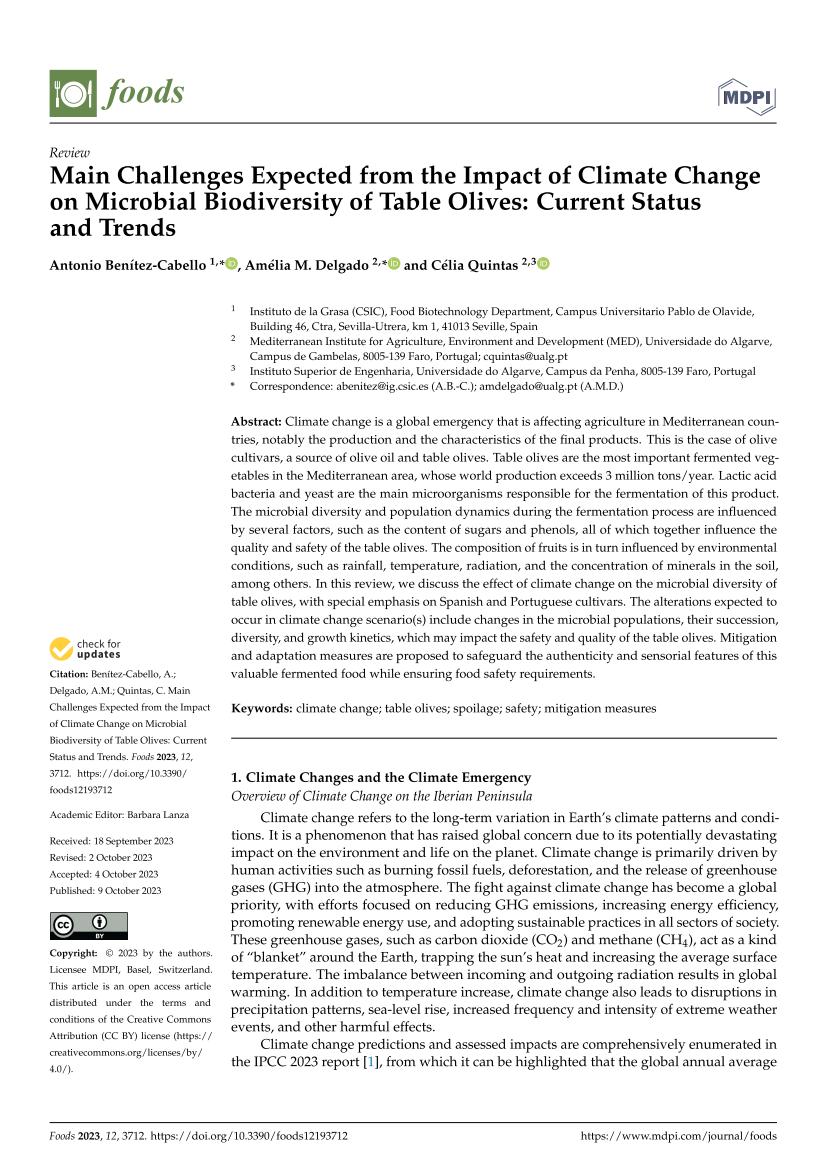 Fonte: Foods
Fonte: Foods
Abstract
Climate change is a global emergency that is affecting agriculture in Mediterranean countries, notably the production and the characteristics of the final products. This is the case of olive cultivars, a source of olive oil and table olives. Table olives are the most important fermented vegetables in the Mediterranean area, whose world production exceeds 3 million tons/year. Lactic acid bacteria and yeast are the main microorganisms responsible for the fermentation of this product. The microbial diversity and population dynamics during the fermentation process are influenced by several factors, such as the content of sugars and phenols, all of which together influence the quality and safety of the table olives. The composition of fruits is in turn influenced by environmental conditions, such as rainfall, temperature, radiation, and the concentration of minerals in the soil, among others. In this review, we discuss the effect of climate change on the microbial diversity of table olives, with special emphasis on Spanish and Portuguese cultivars. The alterations expected to occur in climate change scenario(s) include changes in the microbial populations, their succession, diversity, and growth kinetics, which may impact the safety and quality of the table olives. Mitigation and adaptation measures are proposed to safeguard the authenticity and sensorial features of this valuable fermented food while ensuring food safety requirements.









